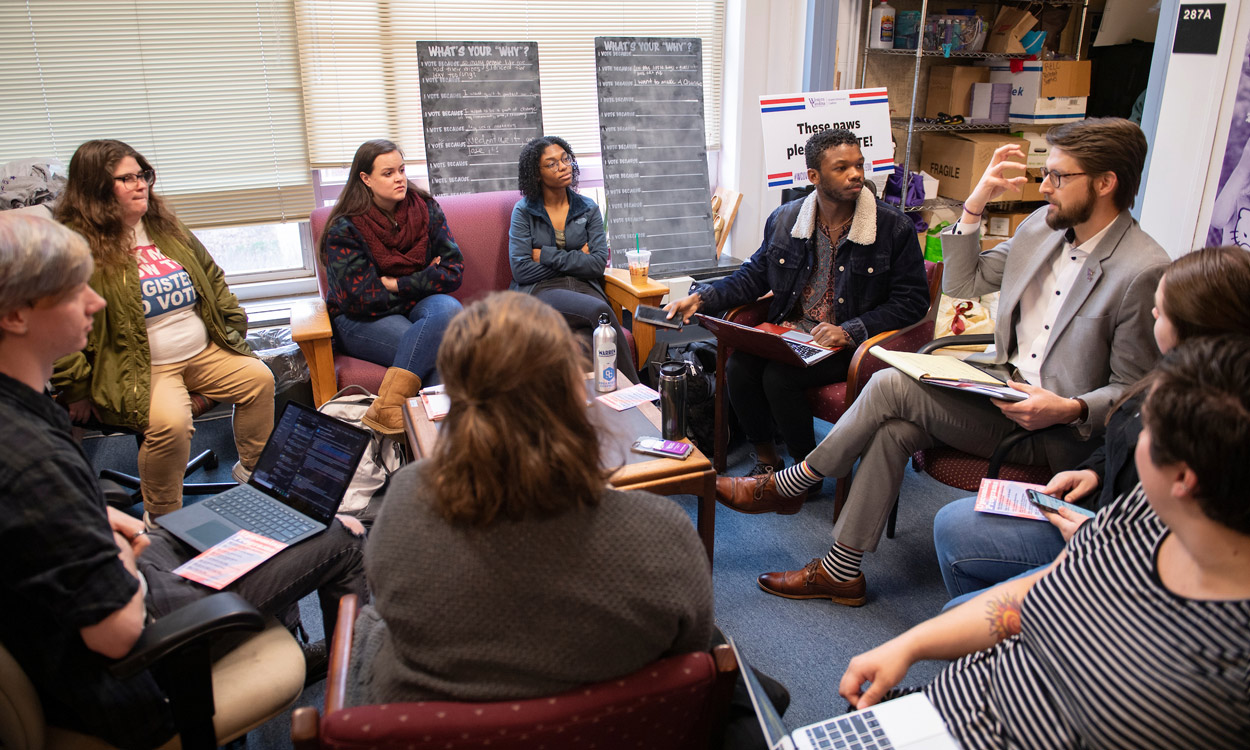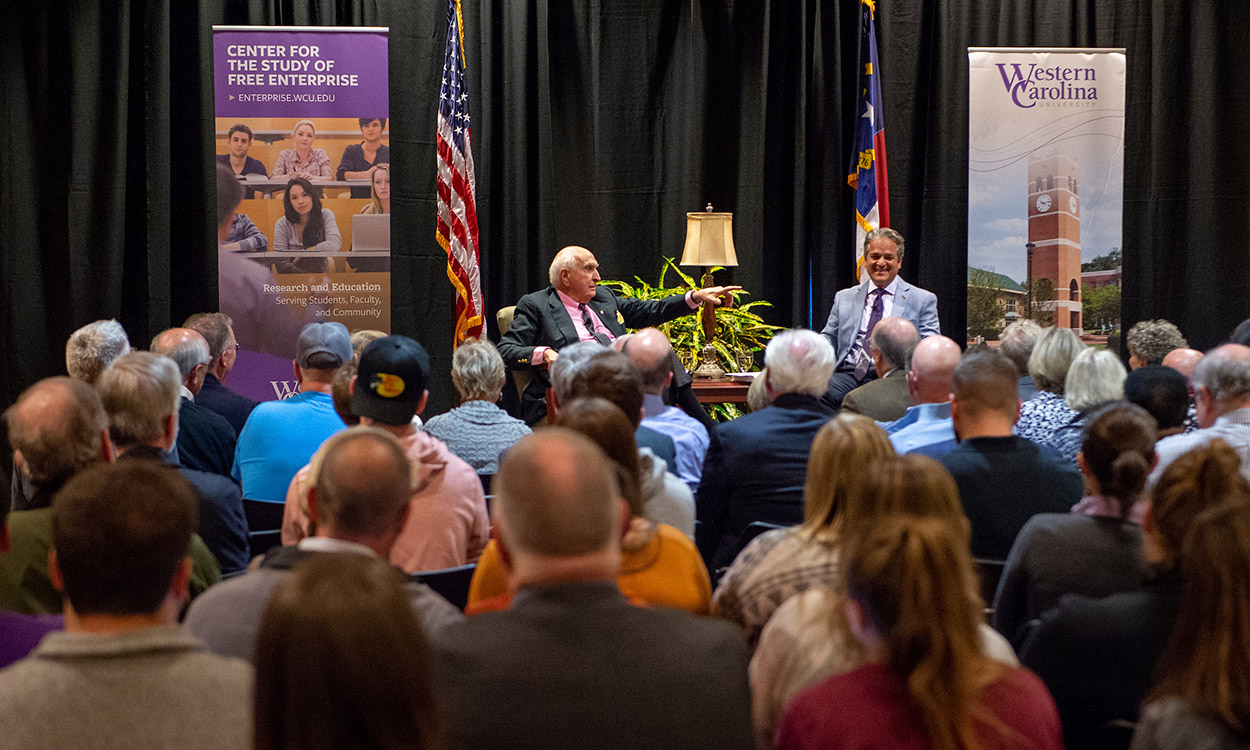Student Democracy Coalition gets grant for work this election

Lane Perry, right, director of the Center for Community Engagement and Service Learning, instructs members of the Student Democracy Coalition.
The Student Democracy Coalition at Western Carolina University has gotten a healthy financial boost this election year, thanks to a recent grant.
An award of $15,000 from the National Conference on Citizenship - Ask Every Student organization will support student nonpartisan voter engagement at WCU. The funding will assist with COVID-19 safety measures, implementing new programming to increase awareness of an on-campus polling place and opportunities for early voting.
The national nonpartisan student voter initiative also provided a bonus of $2,000 to be allocated for student pay or stipends. The additional funding was made after the organization’s steering committee, impressed by WCU’s proposal, recognized the need for a “significant amount of people power,” said Carmen Liñero-Lopez, the group’s program director.
“The grants and resources that have opened up for the Student Democracy Coalition have helped in ways I can’t even describe,” said Rebecca Hart, a junior coalition member. “Our work is never done, which means we’re in constant need of money to support the events and programs we carry out. It’s important for every student to know how and where they can vote, and these resources help us do so.”
Established in 2016, the Student Democracy Coalition works to register voters, build awareness of political issues and hold community forums and candidate debates.
“When I reflect on the WCU civic engagement story, I sincerely believe that it is not something we alone decided to pursue as an institution. I don’t think that would have worked like it has,” said Lane Perry, executive director of WCU’s Center for Community Engagement and Service Learning, a campus partner for the Student Democracy Coalition. “In fact, we did not choose it at the level we are currently invested; it chose us. This degree and intensity of civic engagement chose us through our students who sounded a clarion call for new heights and efforts in student civic engagement.”
Perry said the best measure for testing the culture of civic engagement at WCU is to look at where the efforts are happening. “This year we have efforts in classrooms, both in person and virtual, on campus with clipboards and tables, in the residence halls, in our Student Government Association, through Campus Activities, in the Center for Community Engagement and Service Learning, in Intercultural Affairs, with athletics, and last but certainly not least in our chancellor’s office,” he said. “When something goes from being here to being everywhere the best test is surpassed.”
Funds will help hire two new fellows to assist with additional programming responsibilities and an expansive marketing campaign with digital billboards and social media focused on voter engagement.
“Ultimately, the goal of the Student Democracy Coalition is to ensure that every student at WCU is able to cast an informed vote this November,” said Holly Miller, a sophomore coalition member. “Access to these additional funds has allowed us to host additional voter education programs and helped us to advertise our events to WCU students. For many students, this election is their first time voting, so having access to voter registration and education helps make the process much less daunting.”
WCU, through its Student Democracy Coalition, has received numerous awards and recognition for working to register voters, build awareness of political issues and hold community forums and candidate debates. The university was named one of “America’s Best Colleges for Student Voting” by Washington Monthly, a nonprofit magazine that covers government and political issues. The university had the second-highest rate of student voter turnout for the 2016 general election among North Carolina colleges, according to Common Cause, with 67 percent. Earlier this year the university was designated as an Elite Leader Campus by the Andrew Goodman Foundation for its student voter participation efforts.
“Having these additional funds allows the Student Democracy Coalition, the Center for Community Engagement and Service Learning and WCU to really boost voter engagement at a critical time leading up to early voting,” said Brian Garland, the center’s operations coordinator. “Being able to educate students and the greater community about WCU’s on-campus, early voting, polling place will enable more citizens to participate in the democratic process in Western North Carolina.”
For more information on student and community voting at WCU, contact the Center for Community Engagement and Service Learning at 828-227-7184.

